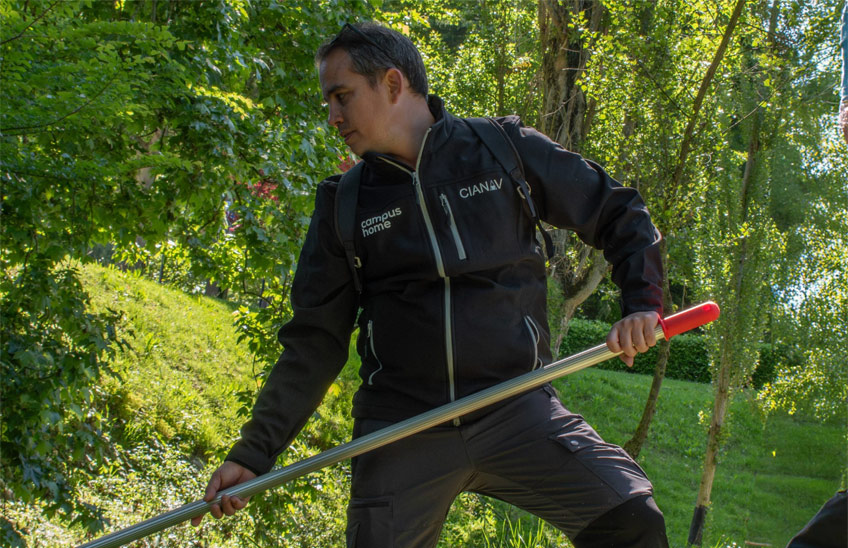The Ministry of Science, Innovation and Universities awards three new research projects to the BIOMA Institute for a value of 470,625 euros.
The Biodiversity and Environment Institute BIOMA of the University of Navarra leads three new projects and collaborates in two others.

PhotoNachodel Río
/Yasser Morera, researcher of the BIOMA Institute, collecting samples for a project of research.
10 | 01 | 2025
The Ministry of Science, Innovation and Universities of the Government of Spain has awarded, in the framework of the call "Generation of the knowledge 2023", three projects to researchers of the Biodiversity and Environment Institute BIOMA of the University of Navarra with a total amount of 470,625 €. The BIOMA Institute projects cover diverse topics, such as the impact of climate change on our natural resources, toxic cyanobacteria blooms and sustainable architecture.
The project HIBLOOMS, with a duration of 3 years and a budget of 208,750€, is coordinated by researchers Yasser Morera and David Elustondo and framed in the National Plan for Adaptation to Climate Change 2021-2030 (PNACC). Some of the objectives focus on strengthening the collection of parameters core topic to study the impacts of climate change on the hydrological cycle or to better understand the current status of potentially toxic cyanobacteria blooms in Spanish reservoirs, which can proliferate under favorable conditions in climate change scenarios.
The project CarViTrans, with a duration of 3 years and a budget of 148,750€, is led by researcher Johann Martínez-Lüscher and framed in the State Plan for Scientific, Technical and Innovation research 2021-2023. The aim of this project is to study the adaptation of crops to the impact of the main climatic factors and to reduce the consumption of natural resources such as fresh water.
CLIMAREADY+TPV, with a duration of 3 years and a budget of 113,125€, is a project led by the researchers Aurora Monge and Ana Sánchez-Ostiz and framed in the State Plan of research Scientific, Technical and Innovation 2021-2023. CLIMAREADY+TPV addresses the potential of transparent photovoltaic glass (TPV) in architecture, both for its contribution to decarbonization, electrification and self-consumption, as well as the reduction of overheating as an impact of climate change in the Building.
Accessibility to the urban mobility and plant dynamics in extreme weather events.
In addition, the BIOMA Institute collaborates in two projects promoted by other institutions.
The 3-year project ADVERT "Scaling temporal dynamics in vegetation under extreme climate events" is led by Francesco de Bello, researcher of the Desertification Research Center (CIDE) of CSIC, with the participation of Ricardo Ibáñez, researcher of the BIOMA Institute. This project aims to examine the fundamental mechanisms that drive temporal variations of species and biological communities in response to climate change. It also aims to test and validate climate change monitoring indicators using phenological changes of species and communities as an early warning system.
Finally, the project eRBANITY, with a duration of 3 years, is led by Aldo Arranz-López, from the Zaragoza Logistics Center of the University of Zaragoza, with the participation of Juan José Pons, researcher of the BIOMA Institute. This project addresses the challenge of the urban mobility : exploring the potential impact of online activities, such as teleworking, online shopping or leisure at network, on the spatial reconfiguration of everyday activities and their role in reducing inequalities related to accessibility.




